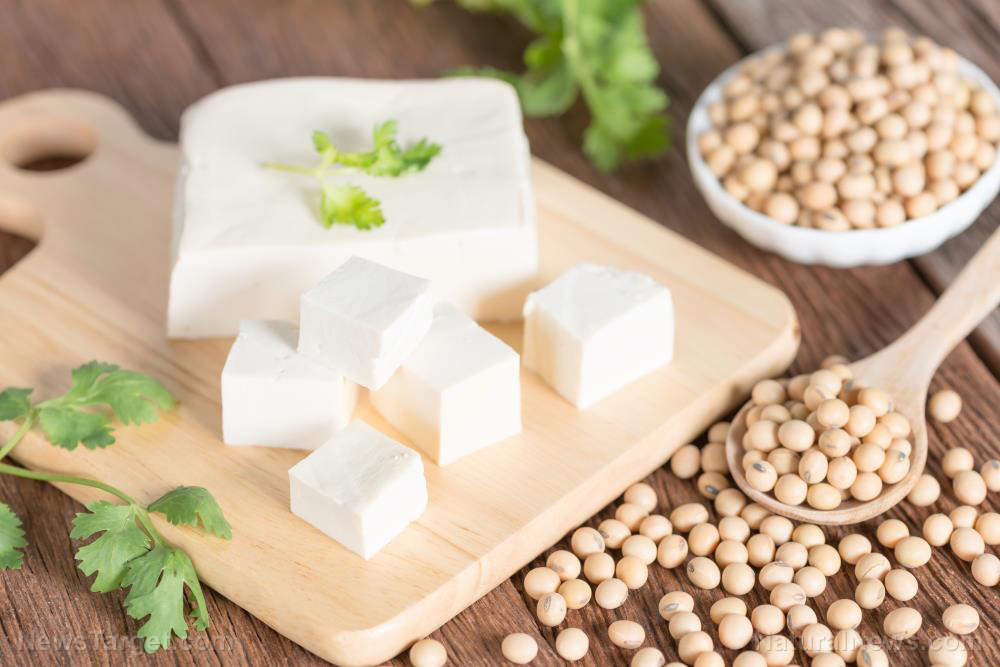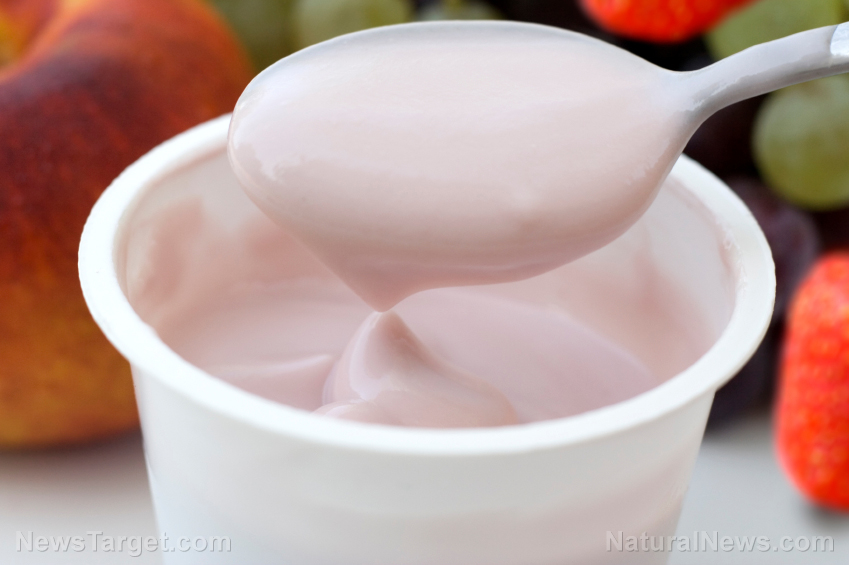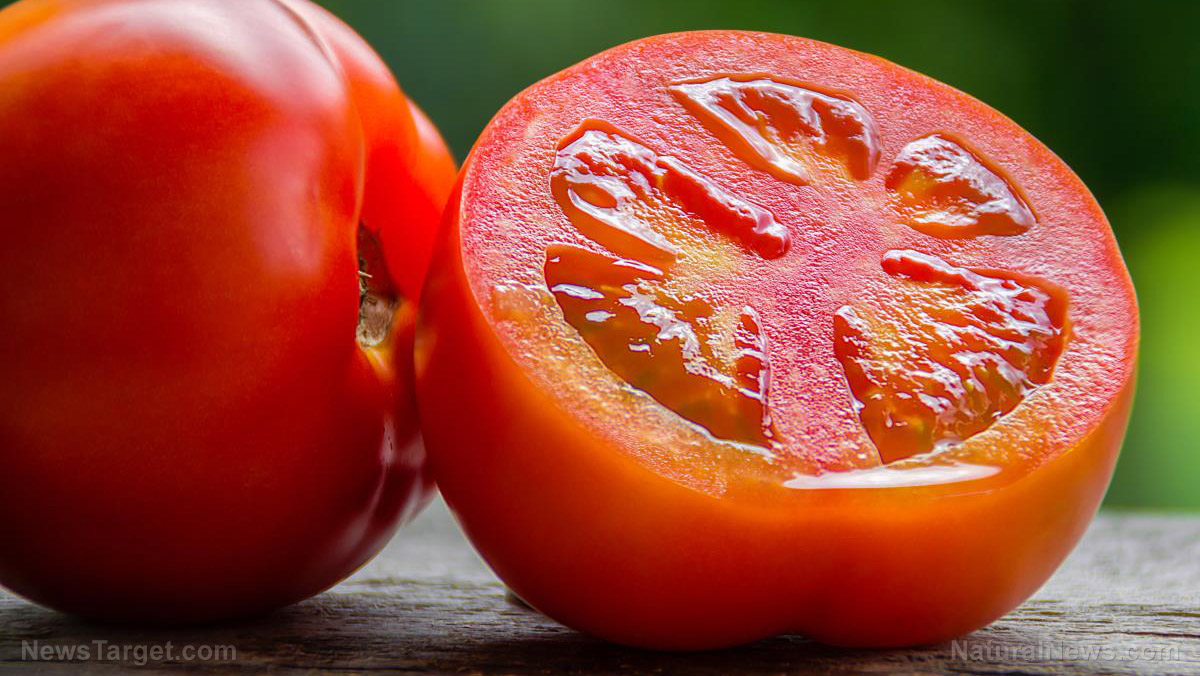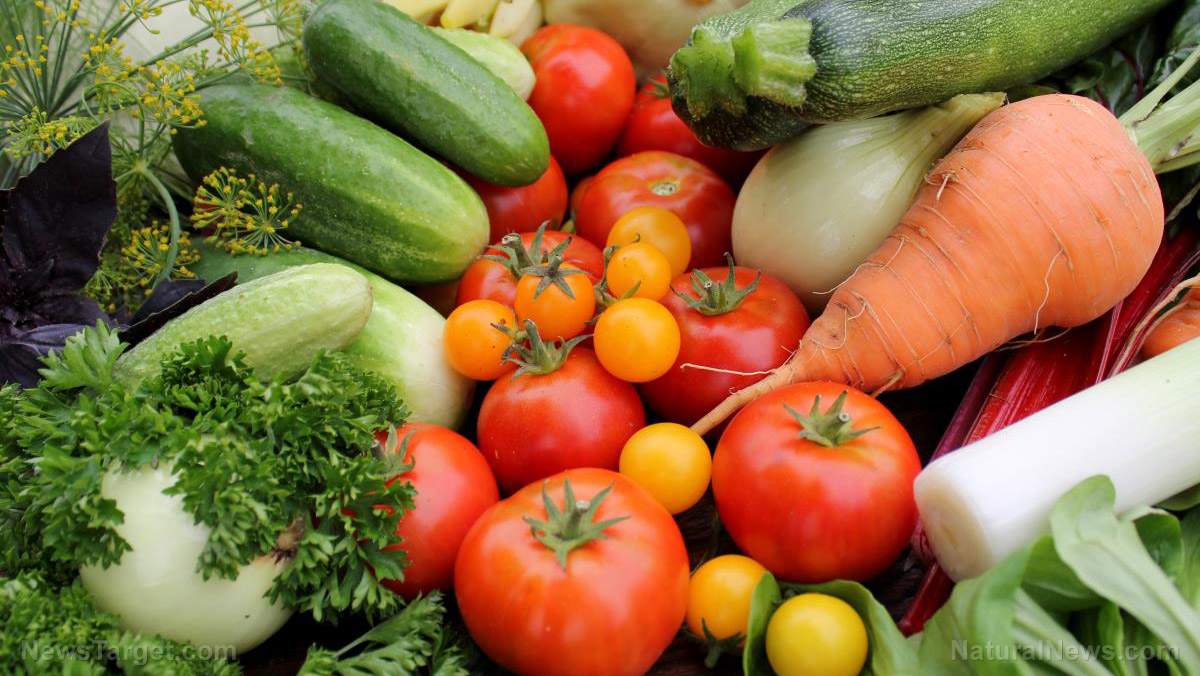Soy pulp used to create a healthy probiotic drink
12/05/2018 / By Edsel Cook

Singaporean researchers have found a way to get healthy use out of the pulpy leftovers after soybean has been processed. An Alpha Galileo news article described how they transformed okara into a probiotic drink full of healthy nutrients.
The process of turning soybean into soy milk and tofu produces pulp is called okara. The pulp is considered to be garbage and is thrown away.
A research team from the National University of Singapore (NUS) took that waste product and turned it into a fun drink. The okara-based beverage has live probiotics, amino acids, fiber, and free isoflavones.
The nutrients are encapsulated so that the body can quickly assimilate them. They improve the health of the gut and the beneficial bacteria that live there.
The process used by the NUS team is patented and produces no waste whatsoever. Their soybean okara drink can last at room temperature for as long as six weeks. Its live probiotic content will also remain high and healthy throughout that period.
In comparison, commercial probiotic drinks use milk and need refrigeration to keep their probiotics alive. They only last for four weeks and lack the highly beneficial free isoflavones. (Related: Brewer’s yeast, a potential probiotic?)
A childhood story prompted NUS researcher to ferment soybean okara
Singapore generates 11,000 tons of soybean okara each year. The by-product degrades very quickly. When it turns bad, it becomes sour and takes on a terrible stench.
“Our breakthrough lies in our unique combination of enzymes, probiotics, and yeast that work together to make okara less gritty, and give it a fruity aroma while keeping the probiotics alive,” said NUS researcher Shao-Quan Liu. “Our final product offers a nutritious, non-dairy alternative that is eco-friendly.”
Liu oversaw the development of the okara drink. The study’s author is one of his doctorate students, Weng-Chan Vong.
According to Vong, her grandparents told her about the fermentation process that turns soybean into miso, paste, and other food products that are prevalent through Asian cuisine. She was enchanted by the idea that fermentation could turn boring food into tasty treats.
After taking part in a project about infusion soy milk into food products, she realized that the process wasted a lot of soybean okara. Vong wondered if fermentation could be applied to the food waste.
Fermented soybean okara drink tastes great and is nutritious
Vong and Liu spent an entire year trying out different enzymes and yeasts for the recipe. Eventually, they were able to turn fishy-tasting and gritty soybean okara into a fruity and refreshing drink.
The final formula uses the L26 strain of Lactobacillus paracasei as the probiotics. Fermentation is achieved with the viscozyme enzyme and the Lindnera saturnus NCYC 22 yeast. The conversion process requires 1.5 days.
The result is a nutritious beverage that meets the minimum billion probiotics per serving that is recommended by the International Scientific Association for Probiotics and Prebiotics. The fermented drink contains free isoflavones that help ensure the health of the heart and blood vessels.
Using GMO soy will negate any health benefits of fermentation
However, the NUS researchers did not mention if the soybean they used for the drink was genetically-modified. GMO soybean would have undermined the health benefits of the fermentation process due to the various artificial methods and chemicals used to develop, grow, and preserve the crop.
Singapore does not have a large local agricultural industry due to space constraints. Instead, it imports a lot of food from its trading partners, many of which are using cheaper GMO crops.
Hopefully, Vong and Lin will consider using organic soybeans for their refined formula. Otherwise, you might as well be eating the unfermented okara.
Nutrients.news has more articles about probiotic food products.
Sources include:
Tagged Under: fermentation, fermented drink, gut bacteria, gut health, probiotic drinks, probiotics, soy products, soybean, soybean okara

















